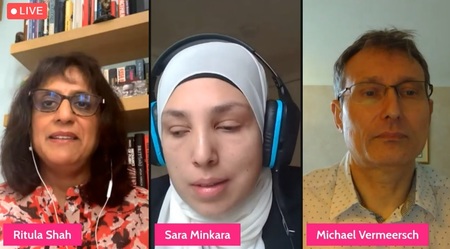
A DISABILITY CAMPAIGNER has called for a change in the societal mindset to accept disability “as part of our lives”.
At a panel discussion on ‘diversity inclusion at the workplace’, Sara Minkara said disability should be “normalised” without people having “extreme” feelings about it.
“When I ask the audience what comes to their mind when they think of disabilities, what a majority of people say is ‘I am sad,’ I am sorry’… It is not yet a normalised world where you accept people with disabilities to be part of our lives… We need to address this mindset when it comes to disability”, said Minkara, who is registered blind. “We still do not see disability as part of our lives.”
Disability inclusion should take place across the board and “it should be part of our space”, she said, adding technology should also contribute to inclusivity.
“Every single producer of technology should think of inclusivity” to change the narrative on disability, she said.
Minkara, who became blind at the age of seven, said her parents helped her see disability “not as negative, but as my identity”. “Being blind helps in a way, because I cannot see people’s faces and their body language”, she said.
People should not feel embarrassed, but initiate dialogues without assumptions or judgments to bridge the gaps, she said.
Microsoft’s Michael Veermersch said technology, particularly artificial intelligence, has a role to play in addressing issues people with disabilities face. He said empathy has been “trickling down” to the ranks of Microsoft under its CEO Satya Nadela’s leadership, although the change is not overnight.
“Empathy is the key to understanding the requirements of customers and empowering everyone”, said Veermersch.